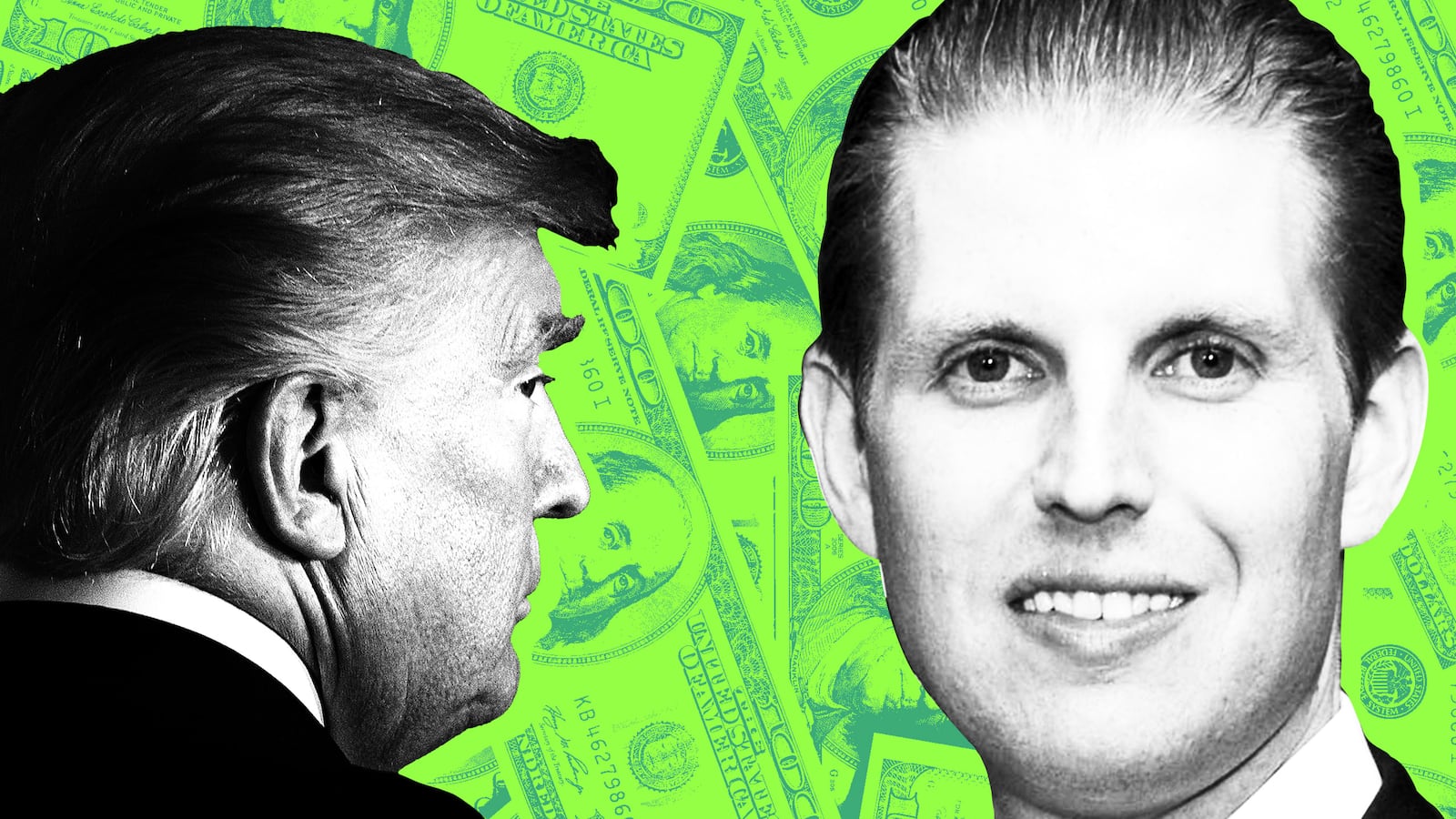Eric Trump’s controversial charitable foundation paid nearly $150,000 to Trump Organization companies in 2016, as donations to the group skyrocketed amid Donald Trump’s presidential campaign.
Newly released annual tax filings for the group, now called the Curetivity Foundation, show that it shelled out to Trump properties in Florida and New York for fundraising events, including its annual charity golf tournament.
Eric Trump stepped aside from his role atop the foundation last year amid intense scrutiny over its payments to various Trump companies. Trump’s critics have suggested those payments could run afoul of rules against the use of nonprofit organizations for the benefit of their officers or directors.
Curetivity paid a total of $145,145 to four Trump companies in 2016, which was a significant decline from 2015, when it shelled out $322,000 to the family’s business empire. According to its 2016 tax filing, Curetivity paid $98,730 to Trump’s golf club in Westchester, $13,000 to another golf club in the Bronx, $10,759 to Mar-a-Lago, and $22,656 to the Trump SoHo hotel.
Each of those expenditures bought services valued at more than the sum of the foundation’s payments, according to the filing. According to a June story in Forbes, Donald Trump previously insisted that his son’s foundation pay for events held at Trump properties, even though those goods and services could be offered for free.
Fundraising events brought in more than $1.7 million for the foundation in 2016, the new tax filing shows. It says that it paid $1.3 million of that sum to the events’ charitable beneficiaries, and spent all of the remaining income—to the dollar—on event expenses, leaving it with exactly $0 in net income.
The foundation’s past payments to Trump companies have led to intense public scrutiny. After the Forbes report, New York Attorney General Eric Schneiderman, a frequent Trump legal antagonist before and during his presidency, opened a preliminary probe into whether Curetivity was improperly benefitting the Trump family. A Schneiderman spokesperson declined to comment on the foundation’s new tax filing, but said “the investigation is ongoing.”
A spokesperson for the foundation did not respond to a request for comment.
Eric Trump has made a number of highly misleading or outright inaccurate claims about the group, including inflating the percentage of its income that goes to charity, and insisting at one point that the group is “one of the largest foundations anywhere in the country, anywhere in the world.”
Facing pressure over the foundation’s payments to Trump companies, he resigned as president and chairman of the board on December 30, 2016. In June of last year, the group officially dropped the Trump name.
Eric Trump pledged not to raise money for the organization after his resignation, citing concerns that donations to the group could be used, or be perceived as attempts, to buy access to President Trump’s family. Despite that pledge, he was spotted in pictures posted to social media from a September fundraiser for the group at the president’s Westchester golf club.
President Trump lamented that resignation at the time, tweeting that his “wonderful son, Eric, will no longer be allowed to raise money for children with cancer because of a possible conflict of interest.”
The group’s charitable contributions to that and other causes continued in 2016, buoyed by a large increase in contributions during the election year. The foundation brought in more than $3.2 million in contributions compared to $1.8 million in 2015. The bulk of those funds were paid to charitable organizations, chiefly the St. Jude Children’s Research Hospital in Memphis, Tennessee, which got a $2.9 million grant.
None of the groups that received money could immediately be reached for comment, with the exception of Tikva Children’s Home, a rescue aid and educational organization focused on Jewish children. A spokesperson for the group quickly said goodbye and hung up after a Daily Beast reporter mentioned the Eric Trump Foundation.
Other grant recipients have drawn scrutiny for their ties to the Trump family, particularly Eric Trump’s sister Ivanka, a top White House adviser.
Members of the president’s political circle remained involved with Curetivity throughout 2016, the new tax filing shows. Eric Trump’s wife Lara, now a top consultant to the president’s reelection campaign, was a member of the board, as was Michael Cohen, the president’s personal attorney.
Dan Scavino, a former Trump Organization employee who now runs social media for the White House, also sat on the group’s board, but did not disclose the position in a personal financial disclosure statement upon joining the administration. New government entrants are generally required to note such positions with nonprofit organizations.






